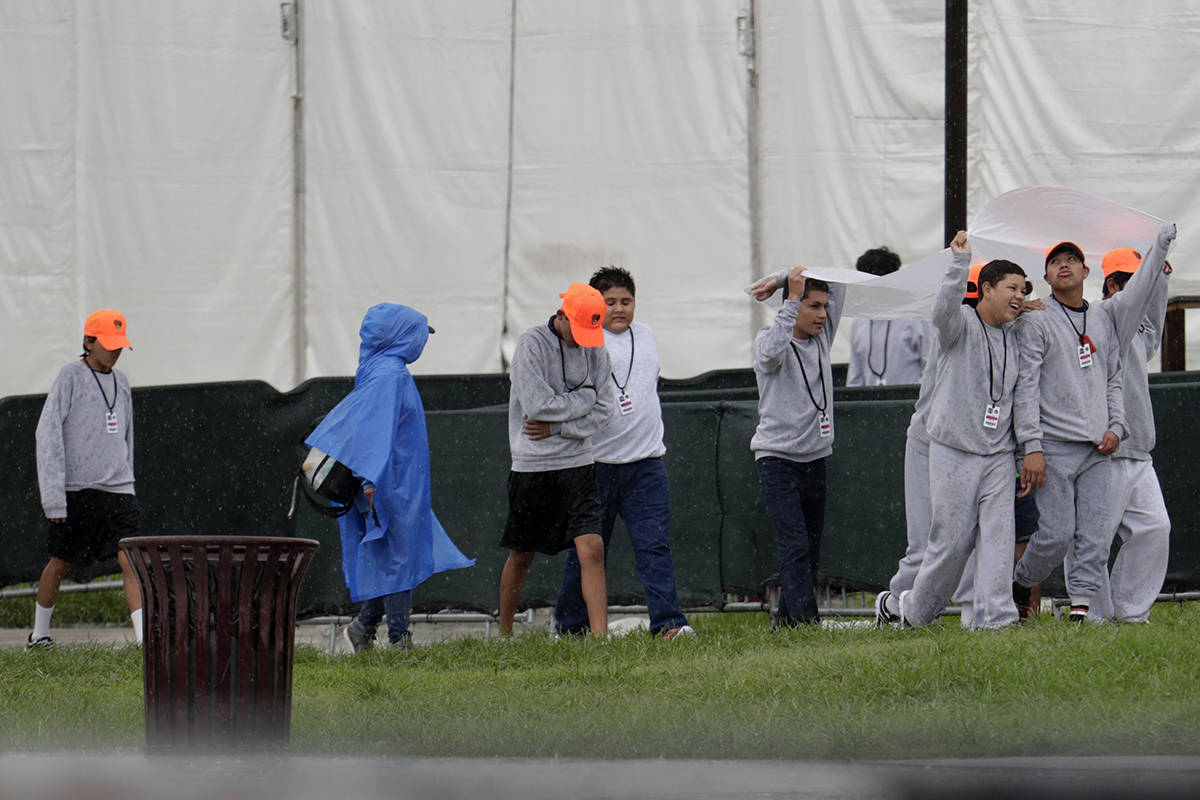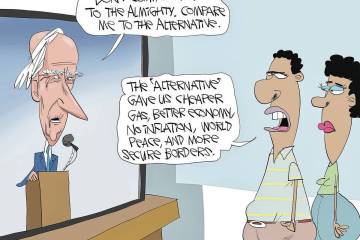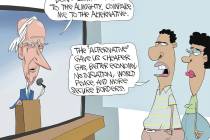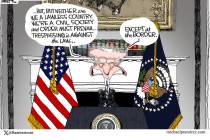RUBEN NAVARRETTE JR.: Immigration debate: Still broken after all these years
The immigration debate is back with its usual mix of promise and pitfalls.
The good news is that we are once again having an adult conversation about who should be admitted to the United States and what to do with those who are currently living here without documents. In a country where many systems aren’t working well at the moment, the immigration system is more broken than most. And real people pay a steep price.
The bad news is that this chapter in our ongoing national dialogue over immigration promises to be as dishonest and dysfunctional as previous ones. Some are still proposing simplistic solutions to complicated problems. Others are still keeping secret their true intentions. Still others seem to be letting politics and partisan interests guide them.
This week, President Joe Biden signed a series of executive orders. One revoked former President Donald Trump’s cruel policy of separating families and created a task force to locate the parents of children in U.S. custody. A second order changed the process by which would-be refugees can claim asylum by no longer requiring them to remain in Mexico while claims are evaluated. And a third sought to support legal immigration by rolling back Trump-era policies that made it more difficult for people to migrate, even when they followed the rules.
This was round two of Biden’s executive orders on immigration. The first round came on his first day in office, when he sought to protect Dreamers (undocumented immigrants brought here at a young age); end the ban on immigrants from Muslim countries; and stop construction of Trump’s “big beautiful” wall on the U.S.-Mexico border.
Another executive order from that early batch — calling for a 100-day moratorium on deportations — hit a roadblock when a federal judge in Texas looked favorably upon a legal challenge by Texas Attorney General Ken Paxton, who insisted the federal government has to alert the states in advance of any significant change to immigration enforcement.
At the other end of Pennsylvania Avenue, Congress received an immigration proposal on Biden’s first day in office that was less-than-comprehensive. The legislation asks for a lot (i.e., a pathway to U.S. citizenship for an estimated 11 million undocumented immigrants). But it doesn’t give back much in return (nothing about beefed-up border security, guest workers, employer sanctions for those who hire illegal immigrants, etc.).
The omissions raise the possibility that Biden’s immigration plan, which will be haggled over for the next several months — could be a sneaky “show bill” that is not intended to pass, only to give the administration a gold star for trying to pass something.
Biden claims that he wants to remedy the abuses that took place during the Trump administration. But we won’t know if he’s serious about improving a broken system unless he goes back further and also tackles the misdeeds that occurred before Trump took office — during the Obama administration, in which Biden served as vice president.
Meanwhile, Homeland Security Secretary Alejandro Mayorkas, a son of Cuban refugees, has been confirmed. Pro-immigrant activists are counting on Mayorkas to take a kinder and gentler approach to border security and immigration enforcement.
Not so fast. Rather than Mayorkas changing the DHS bureaucracy, the DHS bureaucracy is likely to change Mayorkas. Don’t be surprised if the new secretary decides to quietly keep some of Trump’s harsher policies to help control the border, curb illegal immigration and discourage would-be Central American refugees from seeking asylum in the United States.
According to CNN, the Biden administration is opening what both the White House and a compliant media are calling an “overflow facility” to house migrant children apprehended at the border. This is not to be confused, we are assured, with the practice made popular by Trump — and before him, former President Barack Obama — of putting “kids in cages.”
Spare us the wordplay. A jail cell on the border by any other name still strips you of your freedom — often without due process, a fair hearing or even access to a lawyer.
Sure, we need to fix the situation on the U.S.-Mexico border, just as we need to fix the immigration system as a whole. But the first thing that needs fixing is the way we talk about immigration in general.
When politicians sink their teeth into that issue, it’s not a story about good guys and bad guys. More often, it’s a case of bad guys and worse guys.
Ruben Navarrette’s email address is ruben@rubennavarrette.com.






















